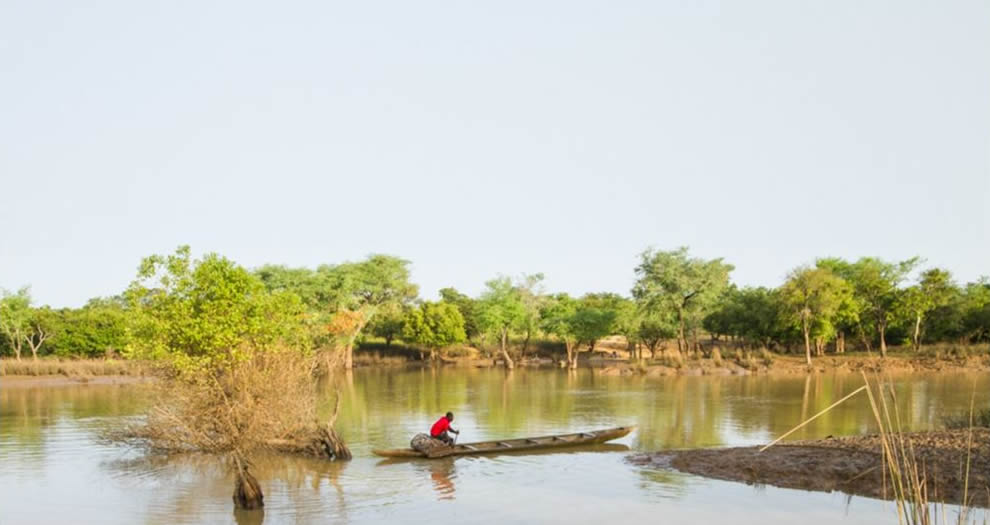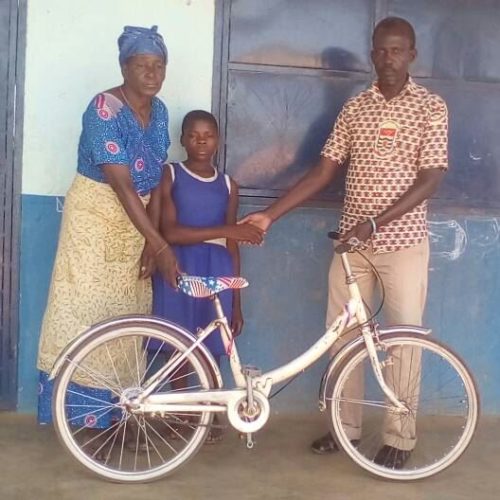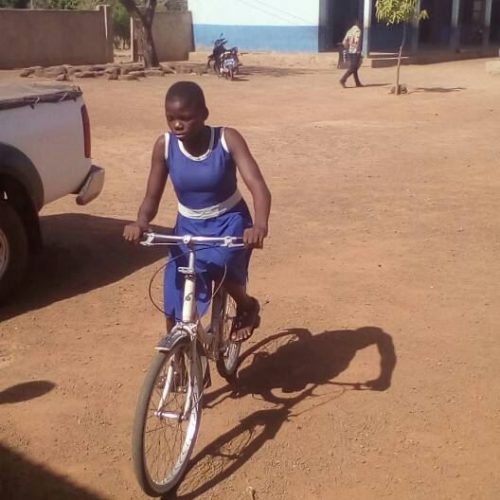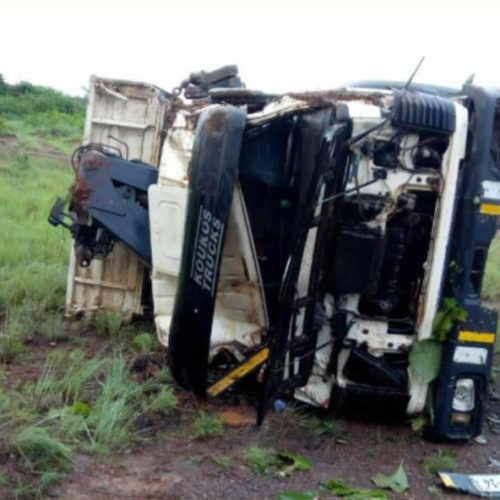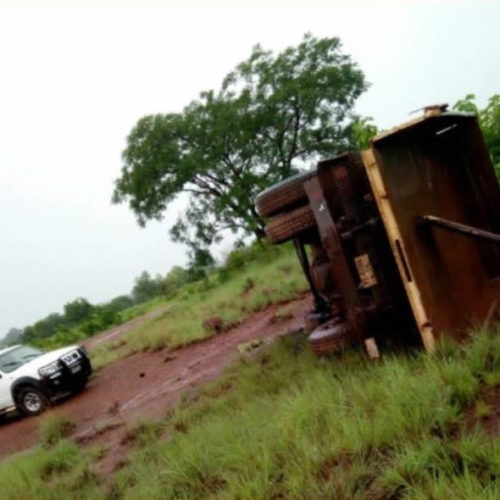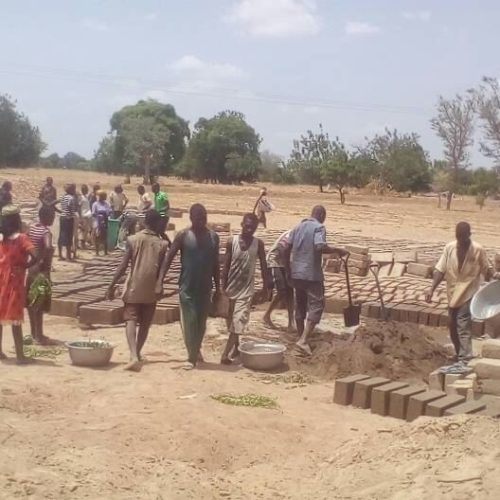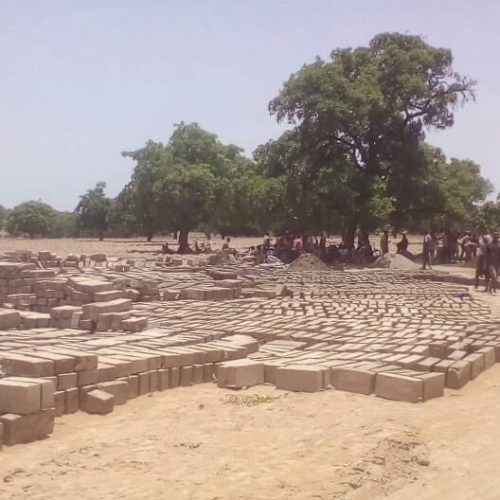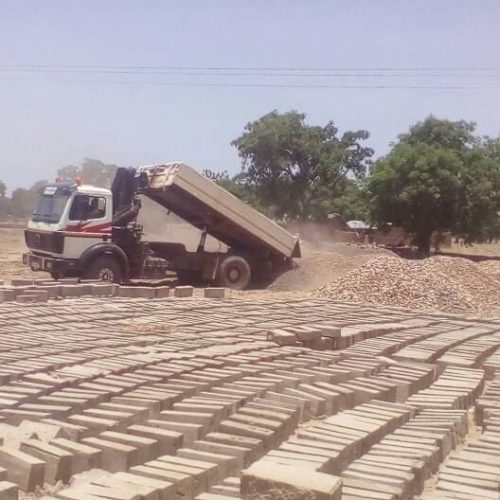Welcome to the online version of our Spring 2018 Newsletter. In this newsletter:
Plans for the future
During January 2018, the Trustees had two days of intense, focussed, fascinating meetings with our Programme Manager in Ghana, Pastor Charles Karbo, and members of his team. Although we speak regularly and receive weekly updates and monthly audit reports, there is nothing quite like sitting around the same table. We met in the house of our friend, Pastor James Kori – which is in Nungua, just outside Accra. Ghana’s capital city, Accra, sometimes feels like a mid-way point between the extremely remote work in the far north of Ghana (15 hours drive from Accra) and the UK (six hours flying)!
It was wonderful to be able to renew our friendships once again with Pastor Charles Karbo and his team. More importantly, it was an opportunity to think, plan and pray about the way forward for the charity over the next few years.
More than a decade after the work started, the villages in which we work are being transformed. And yet, within easy range of the market town of Lawra, are other villages that do not yet know the powerful effect of a Christian school and education in their midst. Research carried out by the team in Ghana shows that another five or six schools would allow every child in this area (Lawra District) to be within reasonable walking distance of school.
As we briefly mentioned in the letter that we sent to supporters in December, we feel that it is right – if the Lord will and as funds allow – to build at least five schools over the coming years. Of course, this is a challenging prospect – both for the small team in Ghana and for the Trustees in the UK. The cost of each school (at current values) is approximately £150,000 – so it is no small undertaking. We take great encouragement from the knowledge of individual lives and whole communities being changed by the schools in our existing villages. While children in the area remain destitute and without the benefits provided by a Christian school, we cannot assume our work is done.
The rest of the newsletter provides some context to this decision —including increased provision from the Ghanaian government for ongoing programmes; the start of building work in a new village (Boo); and, the impact of our work on one particular child.
The Ghanaian Government

On our last day in Ghana, shortly before flying back to London, we had a memorable visit. We left the dusty backstreets of Nungua (where we had been staying) and drove into the heaving centre of Accra – Ghana’s capital city. We were there to visit the government buildings and, in particular, a government minister: the Honourable Anthony Karbo MP. As well as being MP for Lawra, he is also Minister for Roads and Highways (and a distant relation of our Programme Manager, Charles Karbo). The formal meeting, around a Board table in his air-conditioned office, seemed far removed from our usual Ghanaian experiences in the impoverished villages that we serve.
It has become clear, both from experience on the ground and from wider conversations with government, that the government’s increased investment in education will have a positive impact on the ongoing costs of the charity. The Ghanaian government have always paid the ongoing salary costs of teachers at Savannah schools. From academic year 2017-18, they are now also paying all school fees across Ghana for pupils continuing into education beyond 14 (which reduces our need to pay for scholarships for children once they leave our village schools).
There has also been (through the Ministry of Gender, Children and Social Protection) an expansion of the government’s involvement in the feeding programme. Currently at most of our schools, the government now provide a mid-day meal for children aged 5 to 11. We continue to work alongside them, providing a meal for the nursery-aged children (under the age of 5) and the older children (11-14). We are also providing a nutritious ‘breakfast’ drink for children when they arrive at school in the morning.
The relationship with government is managed carefully. They are partners of Savannah – in that they provide ongoing support – particularly for our teachers’ salaries. They are supportive of our Christian ethos, and we have a strong working relationship with them. We are, however, an entirely independent charity.
Meetings
Since the last newsletter we have held a number of meetings around the country, and have been encouraged by the numbers of people attending and the support that we have received.
If the Lord will, we hope to hold a meeting at Clifton Chapel (Broad Street, Clifton, Shefford, Beds SG17 5RN) on Saturday 29th September at 3pm.
Bewule
There are now some 1,600 children attending our Savannah schools. One of these children is Bewule who attends our school in Gberi.
She has been attending school since she was 4. But she has serious disabilities – the result of having polio. It is a disease that is not seen in the UK anymore (the last case was in 1984). Having such disability in this environment is very tough. She lives with her grandmother but Bewule cannot help her by carrying water or assisting with the farming as would usually be expected.
The school has had a profound impact on Bewule’s life. The food that is provided each day has helped to take the pressure off her family. The education is helping her – and also teaching other children not to be scared of disabilities or of other children with disability. And, this March, we were also delighted to be able to provide a specially adapted bike. This will make her journey to school much easier and give her a greater degree of independence.
There is another benefit to the school that is perhaps easy to overlook. During a recent visit to Ghana, we were puzzled (and perhaps slightly alarmed) when someone said to us, “Soon there will not be children like Bewule in our villages anymore.”
They explained that these villages are hard for the medics to access when delivering a vaccination programme. If they arrive in a village with no school, there is often a distrust of strangers and there is no way to call people together in time. Where there is a school, parents can be reassured and informed in advance of which day they should come.
An accident
We would not wish to give the impression that the work in Ghana continues entirely devoid of difficulty or delay. One problem encountered in September last year was a serious accident involving our tipper truck. In the wet season, the roads become muddy and treacherous. On a journey back from one of our villages, the truck had a serious accident. We are thankful that our staff were not seriously injured.
The truck, however, was badly damaged – and this necessitated a series of significant repairs. Indeed, the repairs have given opportunity to give it a complete overhaul, and one positive from what could have been a tragic accident was that the repairs have left the vehicle in a better condition than previously.
GDPR
It will not have escaped our supporter’s attention that new regulations relating to the protection of personal data came into force in May 2018.
We want to confirm that we keep names and addresses of our supporters solely for the purpose of updating you about developments in the work of the charity and, on occasion, public meetings. We keep this data securely and do not share with third parties.
Our full privacy notice is available on our website – https://www.savannaheducationtrust.org/privacy/
New schools
Tungan-Zagkpee
Our new school at Tugan- Zagkpee opened in September 2017. Although this is our sixth school, the sense of excitement at seeing small children in their smart blue uniforms crossing the savannah to attend school lessons does not diminish. This is a privilege that was denied to their parents and every previous generation – and it is wonderful to see another “blue school” providing hope to these scattered and isolated communities. About 230 children now attend the school.
Supporters will remember from the previous newsletter that the new school is unusual in that it serves and is sited between two village communities: Tungan and Zagkpee. It is built on a small hill between the two villages. This is a vantage point that allows views across the local area. It also allows the school to be seen for some considerable distance.
The construction of the school took just 7 months – starting with initial community meetings and ending with an operating school. In the short time since, the prospects of the children of these twinned villages have been dramatically transformed. Some additional work (including painting) has occurred in the months since the start of the academic year in September.
Boo
If you follow he road east out of Lawra, you come to the settlements of Eremon and Domweni. Eventually you come to the village of Boo, right on the edge of Lawra District. A slightly comical name to Western ears, this in reality is a very impoverished farming community. This is the site for our newest school (our seventh) which, if the Lord will, will be built during 2018. The nearest of our existing schools – some distance away – is Korh.
The village of Boo lies in a very populous area, and unusually for a Savannah school, already has a number of children who have had some form of schooling. They have obtained this by walking a long distance to a school in the next village which is so overcrowded that it has been operating in two shifts: one group of children attending in the morning, and the other in the afternoon. Building in Boo will enable all the children in Boo to attend school and will relieve the severe overcrowding at the existing school. A consequence of this situation is that right from the start we will have a few children in each class from Kindergarten right up to Junior High School, and will therefore need to build all three buildings at once rather than starting with just the Primary School as we usually do.
A borehole was drilled at the start of the year, and the community continue to be extremely enthusiastic. By April, they had completed the 12,000 blocks which are necessary for building work (created from 400 bags of cement and a serious amount of sand). Thankfully the area is very sandy. The work has also been helped by the purchase of a Kia truck.
One feature of work at Boo is that (a point that was emphasised at our meeting in January) we are doing everything in our power to make the building sites as safe as possible. Extra investment has included boots, goggles and gloves.
The work at Boo has been funded from a number of different sources, including donations kindly made by grant-making organisations.
Thank you
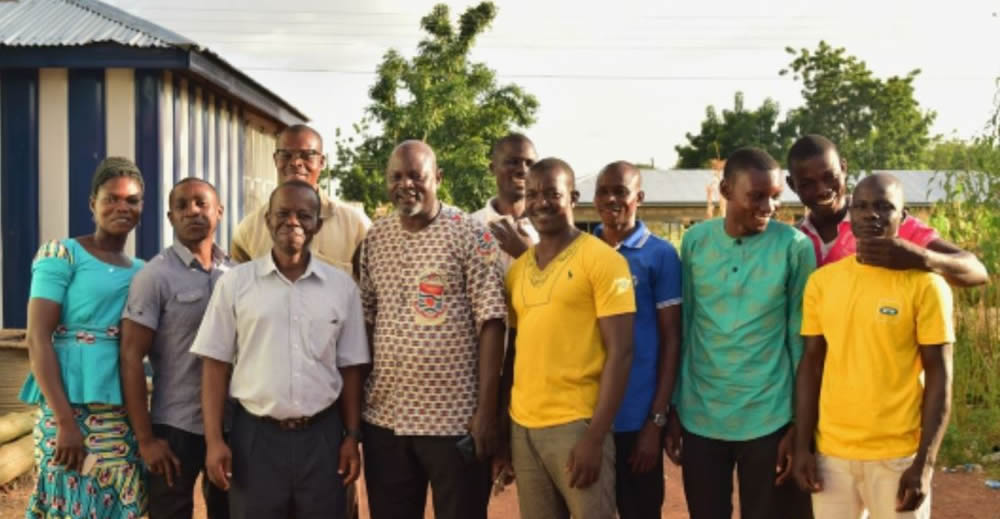
Our Programme Manager, Pastor Charles Karbo, has commented that this year is the busiest that Savannah has ever faced. First thing every Monday, he writes, the small staff team in Ghana meet for prayer and to “rededicate themselves to the work and renew their commitment.”
We also feel the significant responsibility as Trustees. We are truly grateful for the support and prayer of our supporters, particularly as we plan for the future. Thank you.

